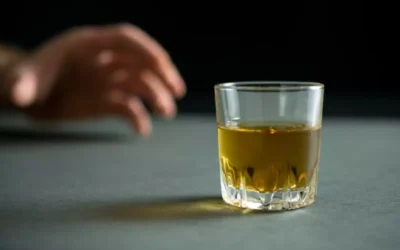Content
Many people have a hard time making the transition after rehab, but all hope is not lost. You CAN do this and you WILL eventually settle into a sober life. In the early days, I felt that it was my responsibility to answer the question, “How come you aren’t drinking? ” I didn’t understand I could decline to answer or that I didn’t have to make sense to everyone. For a period it was, “I’m an alcoholic,” and that tended to silence anyone (for clarification, I no longer identify as an alcoholic). These days, unless I’m feeling generous, I simply say, “I don’t drink,” and leave it at that.
This is especially the case if you’re taking depressants or downers. Abusing substances can also lower your energy due to the fact that substances often rewire the parts of the brain that control your mood. Since your mood affects your energy, the rewiring of your brain can cause you to lose energy as well.
The Sober Life: What to Expect in the First 30 Days
I’d bet nine out of 10 of us won’t even answer, and we’ll just laugh because it’s such a ridiculous question. Sobriety doesn’t necessarily turn you into Liz Lemon, but it can give you the clarity to understand that you’ve been Liz Lemon your whole life. In these moments, I have to remind myself that recovery isn’t just about not drinking; it’s about remembering that I am first and foremost responsible for advocating for my own well-being and boundaries. While you may not wish for this scenario to happen, for there to not be attention drawn to you, or for you to potentially be seen as the difficult, high-maintenance sober chick, this is one of the best things that can happen! This is an opportunity to assert for your needs, and therefore assert your worth.
- You will truly start to live your life to its fullest, and remember the precious moments along the way.
- Life is unbelievably varied and complicated, and every individual has their own lot in it.
- Sober living residences provide a way for those that have recently completed drug or alcohol rehab to re-enter society gradually, with some assisting handrails and supports.
- Caitlin Opland is a licensed clinical social worker who works for Thriveworks, a mental health company.
A mental health professional can help you cope with some of the challenges you’ll face on your path to sobriety. Depending on the type of dependency, PAWS can last from six months to two years after you stop using drugs or alcohol. When you decide to be sober however, new options open up to you. Instead, when you’re sober, you may go camping, hiking, build your first computer, read a book, actually enjoy yourself antiquing, and so on. Your choice of “fun” isn’t limited to where they’re serving alcohol anymore. When you’re sober however, you don’t waste your time thinking of when you’ll drink again, nor do you go out of your way to drink again.
Improved Mental and Emotional Health
For some people, being sober may mean not experiencing any measurable effects of drugs or alcohol. To others, it could mean more than just avoiding using recreational or prescription drugs or drinking alcohol, but achieving good mental health. People often abuse drugs and alcohol to cope with difficult life circumstances or to mask feelings of anxiety or stress. However, this can be a double-edged sword because substance abuse can also cause these issues. When you cut drugs and alcohol out of your life completely, you are forced to face these painful emotions and difficult circumstances without substances.

In Psychology from UCLA and has served as a community advocate/mentor for men and women in recovery since 2010. If you are seeking advice on how to better your sobriety, we can help. Whether you’re freshly sober or a seasoned soda water sipper, temptation lurks behind every barstool, sober life natural wine list, and artisanal breadbasket. What you choose to share with them is totally at your discretion, but take good care of yourself and trust your boundaries. If they don’t respect your decision to look after yourself, it might be worth reconsidering the relationship.
The Biggest Challenges Of Sober Life
Hangover symptoms including nausea, vomiting, headaches and brain fog can last for days in some cases and can diminish your quality of day-to-day life. You can remember everything and not feel that sense of terror of waking up and not remembering what you said or https://ecosoberhouse.com/article/essential-tremor-alcohol/ did the previous night. You don’t have to try and wrack your brain to remember who you were with or what happened. You’re no longer waking up with that sinking feeling that something terrible might have happened the night before, but you can’t quite remember what.
How to be social while sober?
- Call ahead. Call the bar ahead of time and make sure they have some alcohol-free drinks options.
- Set yourself a 'power hour'
- Be the organiser.
- Reframe your thoughts.
- Have an exit strategy.
- Don't be afraid to leave.
When I stopped drinking, not only did my recovery dictate that I needed lots of time to myself, lots of self-care, and lots of nights in, I discovered that I was, in fact, someone who relishes in alone time. I recharge when I’m by myself, and I deplete when I’m with others—especially big groups. It’s been over six years since I first started seriously questioning my relationship with alcohol and considered a life without it. That’s six hard, beautiful, glorious years during which I not only stopped drinking, but also finally moved on from all recreational drugs as well as a history of bulimia. When you abuse substances to the point that it rewires your brain and consumes you, you struggle sleeping through the night. That’s why it’s so important to get the proper amount of sleep each night.